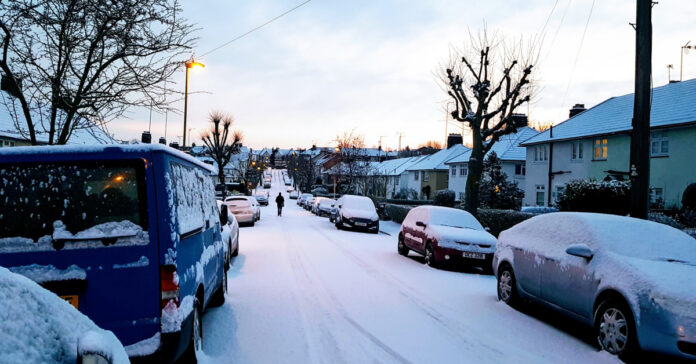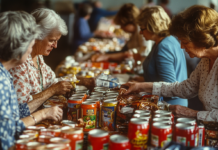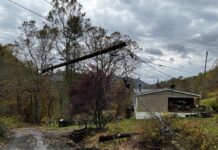According to Reuters, British politicians are telling citizens not to panic as BP closes gas stations and rations fuel deliveries due to a truck driver shortage. They claim Britain is not “heading back into a 1970s-style ‘winter of discontent’ of strikes and power shortages amid widespread problems caused by supply chain issues.”
Up to 90 percent of stations in some areas of the UK are out of petrol due to panic buying, and the government is considering having the army deliver fuel to depleted stations. It has also issued 5,000 emergency visas to foreign truck drivers. However, it may be too little too late.
The Winter of Discontent
They consider the 1978 to 1979 winter the “winter of discontent” in the UK because “inflation and industrial action left the economy in chaos.” Politicians are promising it won’t get that bad this time.
We all know politicians lie and will say anything to get elected. When a politician tells you not to worry, your level of concern should increase. Empty gas pumps and store shelves tell me that British residents know this and are stocking up. British supermarkets know it too. Tesco has warned there could a shortage of turkeys for Christmas dinner and “panic buying in the run-up to Christmas.”
Not because of a shortage of gas, mind you, but because of a shortage of truck drivers. There is plenty of gas, but no one qualified to deliver gas to the stations.
Will it Spread to the U.S.?
I saw recently where someone said “expect to hear the word ‘contagion’ a lot in the next few months.” They were talking about the collapse of Evergrande and its impact on the financial markets, but the concept applies to energy, raw materials, food, furniture, appliances, automotive parts, heavy equipment, and many other items that are not produced in the U.S. or depend on foreign-made parts. Because of the highly interconnected supply chain, a failure in one area can cause shortages and high prices in another. For example, the cost of shipping, which has more than tripled, affects the cost of finished goods made in Asia and leads to both shortages and higher prices for the consumer. Yet shipping delays are growing, not decreasing.
Another example: In the UK, a lack of wind drove up demand for natural gas, causing electricity prices to spike. As we reported a week ago, this also drove up the cost of fertilizer, leading some companies to shut down production, which led to a shortage of carbon dioxide, which is a byproduct of fertilizer production. This, in turn, leads to a shortage of carbonated beverages and concern that CO2 will not be available to kill animals at the processor, which is why turkey (and other meats) may be in short supply in the UK at Christmas. That’s a long chain, and failure of any link affects those after it.
European Shortage Drives up U.S. Prices
With natural gas demand souring across Europe, the U.S. is shipping liquefied natural gas across the Atlantic. International demand, in turn, curtails supply in the U.S. and causes prices increases. Prices today are double what they were a year ago, meaning the cost to heat your home will go up. Natural gas storage is already 7.5 percent below the average for this time of year, and it is unlikely we will catch up, especially if it is a cold winter.
Natural gas demand increases in the winter because it is the fuel used to heat 48 percent of all homes. It is by far the most popular heating source in most urban centers. It also is used to generate electricity, which is used to heat 37 percent of homes, and failure of natural gas production in Texas back in February was a contributing factor in many of the electrical outages during the wave of sub-freezing temperatures.
You Can be Cold or Broke, Your Choice
As natural gas prices rise, people will have the choice to be cold or broke cold this winter. Whether or not your electricity goes out may be out of your control, but it is most likely to happen in states that rely on natural gas, solar, wind, and hydropower.
Natural gas is also a feedstock for critical parts of the economy, including much of the chemical, polymers, and fertilizer industry. All three are important for other industries, from manufacturing to farming. Plastic parts, housings, gears, structural components, and packaging, to name just a few, could be hit by shortages or price increases. When the price of plastics goes up, so do the prices of your cars, toys, electronics and appliances. When the price of fertilizer rises, so does the cost of food. All of that means more inflation.
As I reported yesterday, inflation is worse than government numbers imply. I don’t see it going away in the next 18 months.
Panic Buying
The British are experiencing the same kind of panic buying we saw on the East Coast when our major gas pipeline shut down this summer because of a cyberattack. People rushed to fill their tanks and any spare cans, despite having no immediate need for the excess gas. This surge in demand turned a minor problem into a major one.
Last year, at the start of the pandemic, we saw similar panic buying wipe out supplies of hand sanitizer, antimicrobial wipes, and toilet paper.
There are two clear lessons here for preppers:
Lesson One: Prepping works. You may not need your preps for the end of the world, but from time to time, you will need part of your preps.
Lesson Two: If you need to stock up or top off your supplies, do it at the first sign of trouble. You want to beat the panic buyers, not line up behind them.
Other specific suggestions:
- If you heat with propane, fill your tank now.
- Refill your vehicle’s fuel tank when it reaches the halfway mark, and store a couple of five-gallon cans of gas if you can.
- If you heat with natural gas, have a back-up system. If that backup system is wood, have a good supply of firewood on hand.
- Have food on hand that does not require refrigeration and a method to cook that does not use electricity.
- Be prepared. It can’t hurt and will probably help if we see our own “winter of discontent.”








